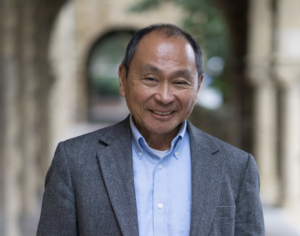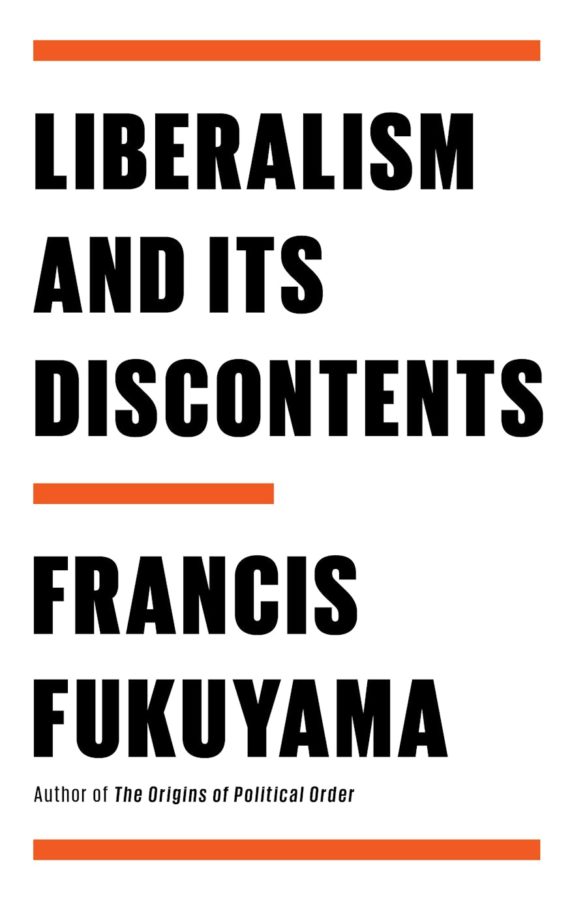NOTE: Readers should be aware that the term “liberal” is used throughout this article in reference to classical liberalism and not to the modern progressive left. Classical liberalism is defined below.
In his new book Liberalism and its Discontents, renowned political thinker Francis Fukuyama brilliantly chronicles America’s liberal foundations, and how we are drifting astray from those original ideals.
The book chronicles the foundations of classical liberalism, namely that classically liberal societies “confer rights on individuals, the most fundamental of which is the right to autonomy, that is, the ability to make choices with regard to speech, association, belief, and ultimately political life.” Classical liberalism is the ideology that asserts the equality of all humans, and the rights of all humans. It says nothing about economics. The book goes on to describe how both the American left, through critical race theory, and the American right, through assaults on democratic processes such as voting, are contributing to liberal recession. Most importantly, the last chapter, entitled “Principles for a Liberal Society”, outlines the steps needed for “the revival—indeed, the survival—of liberalism itself.”
Famous for his 1992 book The End of History and the Last Man, Francis Fukuyama is a world-renowned political philosopher. With degrees from Cornell and Harvard, along with honorary degrees from six other institutions, Fukuyama currently serves as the Oliver Nomellini Senior Fellow at Stanford University’s Freeman Spogli Institute for International Studies. Liberalism and its Discontents is in many ways an extension of The End of History and the Last Man, which described how liberalism is the “end” of human ideological development. His new book acknowledges that liberalism has come under attack in recent years, and that the struggle for liberalism is not yet over.
A society of inward-looking individuals interested only in maximizing their personal consumption will not be a society at all.
— Francis Fukuyama
Fukuyama sources this departure from classical liberalism to one simple cause: the placement of far too much importance on individual autonomy. On the conservative right, this has manifested as neoliberalism. Neoliberalism is an economic ideology that prizes ultimate market power and limited-to-the-point-of-nonexistent government interference in the market. He claims that neoliberalism, far from promoting economic prosperity, leads only to massive inequality.
On the other hand, the progressive left has also placed far too much emphasis on the individual, in the form of critical race theory and identity politics, according to Fukuyama. He refers to this phenomenon as the “Sovereign Self.”
Modern liberal identity politics adopt secular moral relativism in a rebellion against religion and traditional values. While this appears good at first, Fukuyama argues that “the type of liberalism that seeks to be relentlessly neutral with regard to ‘values’ eventually turns on itself by questioning the value of liberalism itself, and becomes something that is not liberal.” Fukuyama asserts that these ideologies atomize, and therefore divide us, stating that “[a] society of inward-looking individuals interested only in maximizing their personal consumption will not be a society at all.”
What is most impressive about Fukuyama’s book is not the mere revelation that liberalism seems to be receding—this is fairly apparent—but rather the sheer breadth of modern problems that can be explained by the recession of liberalism. Critical race theory, identity politics, conservative attacks on elections, rampant economic inequality—all explained by a slow shift away from classical liberalism and towards neoliberalism and/or authoritarianism. Fukuyama’s work is valuable in that it situates a wide scope of problems in America’s political landscape into the framework of liberal backslide.
Fukuyama’s book does, however, fall short in a few ways. For one, he oversimplifies progressive views on systemic racism and identity. Fukuyama condemns the fact that “Critical race theory has erected a large intellectual structure which permits progressives to write off that entire element of society as part of a racist, patriarchal power structure that is illegitimately clinging to its former privileges.” This condemnation, and the lack of subsequent explanation, reeks of the denial of systemic racism, something that Fukuyama does nothing to address—worrying, at best.

The other primary way his book falls short are his views on federalism, namely that any duty that can be relegated to local government should be relegated to local government. While Fukuyama presents this as a solution to the recession of liberalism, it is the most extreme of the solutions he offers, and is supported only by the statements that “democratic self-government should take precedence over uniformity of application” and that “[o]ne of the major issues in American politics in recent years is the way that these local levels have been infected with the polarization that exists at the national level.” The first of these statements describes democratic reform and has little to do with liberalism, and the second of these statements does not clearly support liberalism at all, and even seems to contradict his point regarding federalist delegation.
Despite the seeming injection of his personal political views, however, Fukuyama’s work manages to concisely describe the causes of and solutions for modern liberal recession, and should not be discounted.
The latest installment in Fukuyama’s liberalist chronology, Liberalism and its Discontents traces historical narratives and current developments to a single framework —modern liberal backslide—and uses it to explain an impressive range of phenomena in startlingly poignant fashion. America is full of problems, and by identifying the similarities between progressive and conservative illiberalism, Fukuyama pushes the reader to awareness of a decaying liberal spirit. By doing so, he fosters the productive discontent that must precede change—hopefully, a classically liberal change.












